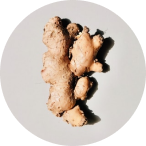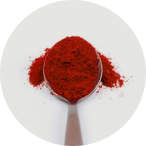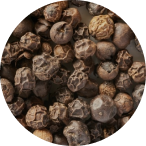Little Ways to Get More from Your Immune System
“I’m an Herbalist and This Is
What I Do To Boost My
Immune System”
RACHELLE ROBINETT, BASE MEMBER AND REGISTERED HERBALIST (AHG), EDUCATOR, AND THE FOUNDER OF PHARMAKON SUPERNATURAL, AN HERBAL COMPANY DEDICATED TO BRINGING HERBALISM TO EVERYONE.
Whether immunity is a focus right now because of the time of year, virus-awareness (hi, “flurona”!), or a new year’s goal to be your healthiest self, you might be wondering what you can use to boost your immune system. We asked herbalist Rachelle Robinett for her take on the matter, and here’s what she had to say: “Just like we (hopefully!) know not to consume sugar when we’re fighting off a cold or flu, there are many foods and herbs that help improve the immune system function. My favorites are food-medicines that blur the boundary between nutrition and herbalism — because really, everything we consume is functional in some way!”
Read on for more on how Rachelle uses herbs to support her body’s natural defenses.
Garlic:
Can reduce the length of illnesses, increase T-cell count, improve the activity and quantity of NK (natural killer) cells, and reduce frequency of upper respiratory tract infections. Eat it in any form! Raw or cooked (roasted is fantastic), fresh or dried.
Ginger:
I love-love this herb for improving circulation and releasing muscle spasms. It supports digestion and motility, is anti-inflammatory, has antiviral activity, and supports a healthy immune-system response. As with garlic, any way is a great way to have it. (My preferred is fresh ginger shots.)
Cayenne:
Another fantastic circulation increaser that’s also gastroprotective, cayenne is featured in a traditional Caribbean recipe for spicy lemonade to treat fevers and sore throats. As a strong diaphoretic (herbalism-speak), it increases body temperature to induce sweating which can help break a fever. Cayenne is also an analgesic (pain reliever). Try it sprinkled on food, or in capsules for the benefits without the burn.
Black pepper:
This plant is a bioenhancer, which means it helps improve the absorption of any other herbs or supplements it’s taken with. It’s used as an expectorant (helps us expel things like excess mucus), and for cold, damp coughs. Pepper is anti-inflammatory. Sprinkle it on food, or make it into a tea (for the bold).
Turmeric:
The plant that does nearly everything, turmeric reduces inflammation in our brain, digestive tract, and body overall — and it supports the health of our liver and immune system. The last point is significant because this herb supports immune system function without over-stimulating it — an important consideration for those with auto-immune conditions. It’s often quite beneficial specifically for treating autoimmune imbalances. Turmeric can be used as a powder in cooking but it’s also best to take a full-spectrum supplement formulated for potency and absorbability.
Functional mushrooms:
These potent immune-system supports do the job of normalizing and encouraging active but not over-active immunity. Again, that’s a major point for anyone with auto-immune imbalances, or anyone who wants to avoid creating them. Mushrooms are often part of cancer protocols in Traditional Chinese Medicine and always part of my ongoing (that is, daily) health practice. Take them in powders (which make great salad dressing additions), tinctures, or capsules. Always from a good source! And, cook with the palatable one’s too.
this post appears originally here








